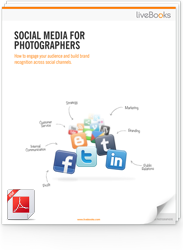 livebooks blog
livebooks blog
Resolve
A collaborative online community that brings together photographers and creative professionals of every kind to find ways to keep photography relevant, respected, and profitable.
Have an idea for a post?
Want us to find an answer to your question? Interested in becoming a contributor?Email us
CATEGORIES
- Aerial Photography
- Business
- Featured Blogger
- Featured Website
- Fine Art Photography
- Ideas
- Industry Events
- Inspirational Work
- Meet the Team
- Networking
- New Features to LB8
- On The Calendar
- Philanthropy
- Photography
- Adventure Photography
- Advertising Photography
- Animal Photography
- Art Photography
- Beauty Photography
- Celebrity Photography
- Commercial Photography
- Documentary Photography
- Editorial Photography
- Fashion Photography
- Food Photography
- Hospitality Photography
- Interior and Architecture Photography
- Landscape Photography
- Lifestyle Photography
- Nature Photography
- Photojournalism
- Portrait Photography
- Science Photography
- Space Photography
- Sports Photography
- Still Life Photography
- Travel Photography
- Wedding Photography
- Wildlife Photography
- Wine Photography
- Playlist
- Playlists
- Social Media
- Tuesday's Tip
- Video
- Webinar
- Website Tips

When blogs swipe your images, you might get more than traffic coming back to you. ©Lou Lesko
For the last year and a half I’ve been enthusiastically pushing photographers to let their images get swiped for non-advertising online use as long as there is an attribution link back to their site. I anticipate blogs rapidly becoming the main sources for news online, so the more exposure blogs swiping your images get, the more exposure your work will get via attribution. What I didn’t consider initially is the potential guilt-by-association factor if your image is used with a bogus or inflammatory blog post.
There has been a rise in criticism of high profile blogs posting stories that violate expected ethical considerations in the past few months. Popular blogs that have risen to the top through marketing and hiring good writers who are assumed to adhere to a journalistic code of ethics. However, unless stated specifically, there may be no ethics involved at all. And to be fair, even blogs that do subscribe to an ethics code can get it wrong. Blogging is still a young medium — these issues will eventually be resolved but right now they’re still being worked out.
My concern is that a swipe of one of my images could result in my name being associated with a blog post with which I have moral or ethical conflict. I know I can’t have have it both ways. I can’t pray for link exposure and then get pissy when I get it because I don’t like the blog that gave it to me. That’s like lobbying National Geographic for a foreign photo assignment in Russia, then pouting because they send you in the dead of winter.
What are your thoughts? If a blog whose content you disagree with ran an image of yours with a highly contentious story, but you got a lot of exposure, would you be upset, maybe even contact them to have your image removed? Or would you be thrilled to have your online presence elevated because of the huge click-through rate to your site?
4 Comments
Leave a reply
FREE EBOOK
Learn how to engage your audience and
build brand recognition across social
channels. Learn more...

READY TO GET STARTED?
Pick your package. Pick your design.
No credit card required.

March 25th, 2009 at 8:53 am
Tony Gale
I still think they should just ask first. Then it’s case by case.
March 25th, 2009 at 9:19 am
Qathi Hart
I waffle on this, as it seems the only people grabbing my images are putting them up on pervy fetish websites. When it first happened I took a very zen approach and concluded that no harm is actually resulting from my well intentioned photo being displayed out of context. So I let it go. One can only hope that whomever is digging for my images a)sees the presentation I’ve put together to be found at the top of searches b)acknowledges that they’re the one surfing around in the pervy fetish websites, not me.
So where does the waffle come in? We don’t have any control of how our stock images are being used, aside from a licensing and a few bucks, what’s the difference?
March 25th, 2009 at 11:18 am
Nick Zantop
Happens constantly. 3/4 of the magazine editorials I shoot end up getting scanned by someone and posted to a blog, forum, etc…
Mostly it’s just folks who really love fashion & fashion photography. Fine by me.
Of course if they say horrible things about me, I might rescind this stance! :P
March 25th, 2009 at 3:03 pm
willie d.
This seems largely beyond the ultimate control of individual photographers (not always of course). Major media corporations have a very difficult time keeping control of the material they produce being circulated on the web (TV, movies, record labels, etc)…my personal legal department consists of a legal pad. That’s it, just the pad. It’s a bit longer than most pads which is nice I guess. However it plays more of “the quiet but good listener” role in my life rather than advocating for protection and correct valuation of my work. Anyways, we cannot assume to selectively share professional or personal work, nor maintain its context. It’s a large topic but to make a small point: Unlike music or movies, anybody can simply make a screen-grab of your photo, which for web (ie- blog) purposes is a perfect duplicate of the original image. This has unfortunate implications for self-censorship, unintentionally hurting your subjects, allowing others to financially benefit from your work, contributing to efforts you don’t support, etc. Ah well….we can also acknowledge there will always be valid social benefit to unregulated image exchange.